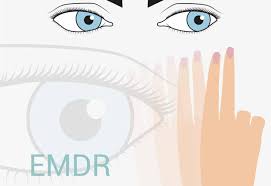Houston is ranked the 4th most populous city in the United States, with a population of more than 2.3 million. It has a size of 665 square miles and the biggest in Texas and southern America. Greater Houston is an ethnically diverse city with about 145 spoken languages by the residents. If Houston were a country, it would be the 30th most successful in terms of economy.
Therapy or counseling is one industry that is thriving in Houston, Texas. EMDR (Eye Movement Desensitization and Reprocessing) therapy is a form of psychotherapy that helps individuals recover from deeply distressing life circumstances, including depression, trauma, panic disorders, and PTSD. Only licensed and well-trained Houston Therapists should offer EMDR therapy.
How Does EMDR Therapy Work?
EMDR works in accordance with various psychotherapy theories, such as cognitive-behavioral therapy. A therapist utilizes this therapeutic approach to restore stagnant emotional processes caused by distress. This helps reprogram the brain of the patient to start dealing with pain and fear-related to emotional distress and trauma.
EMDR involves using other types of methods like audio stimulation, hand tapping, and eye movements. EMDR therapy allows the brain to return to its natural healing process and does not focus on talking in detail about an upsetting problem. Also, EMDR helps the patient acquire a new perspective that can enhance personal beliefs regarding their capabilities as well as increase their self-esteem.
EMDR utilizes eight stages of treatment, emphasizing the present, past, and future. This comprises of:
- Treatment planning
- Preparation
- Assessment
- Desensitization
- Installation
- Body scan
- Closure
- Re-evaluation
Who Needs to Undergo EMDR Therapy?
The Eye Movement Desensitization and Reprocessing therapy is beneficial for adults and kids of all ages. Houston Therapists give this treatment to address a variety of difficulties, including:
- Performance anxiety
- Sleep disturbance
- Dissociative disorders
- PTSD and other stress-related concerns
- Loss and grief
- Depression and bipolar disorders
- Addiction and substance abuse
- Eating disorders
- Sexual assault
- Chronic Illness and medical issues
- Violence and abuse
- Pain
- Phobias
- Anxiety and panic attacks
- Personality disorders
How Does EMDR Therapy Impact the Brain?
The brain has a natural way of healing from traumatic events and memories. The freeze, flight, or fight instincts are part of the natural stress responses of humans. This refers to the communication between the hippocampus, the prefrontal cortex, and the amygdala. The hippocampus aids learning, which includes memories regarding danger and safety. The prefrontal cortex controls and assesses emotion and behavior. The amygdala is the alarm signal for events that cause emotional or mental stress.
Even though a person can manage and resolve traumatic experiences on impulse, these circumstances need a professional intervention to process properly.
When trauma from a challenging event stays, the disturbing emotions, thoughts, and images can produce overwhelming feelings, something like being frozen in time. The therapist helps normal healing to continue by teaching the brain how to process these memories. While you may still remember the upsetting experience, the therapy will resolve the freeze, flight, or fight response from the initial event.
There are a wide variety of therapy options to treat a traumatic event that you are battling now, but EMDR is a safe and effective therapy. Houston Therapists will help you determine if it is the ideal treatment for your specific needs. It also helps if you find a therapist who you will be comfortable with.
